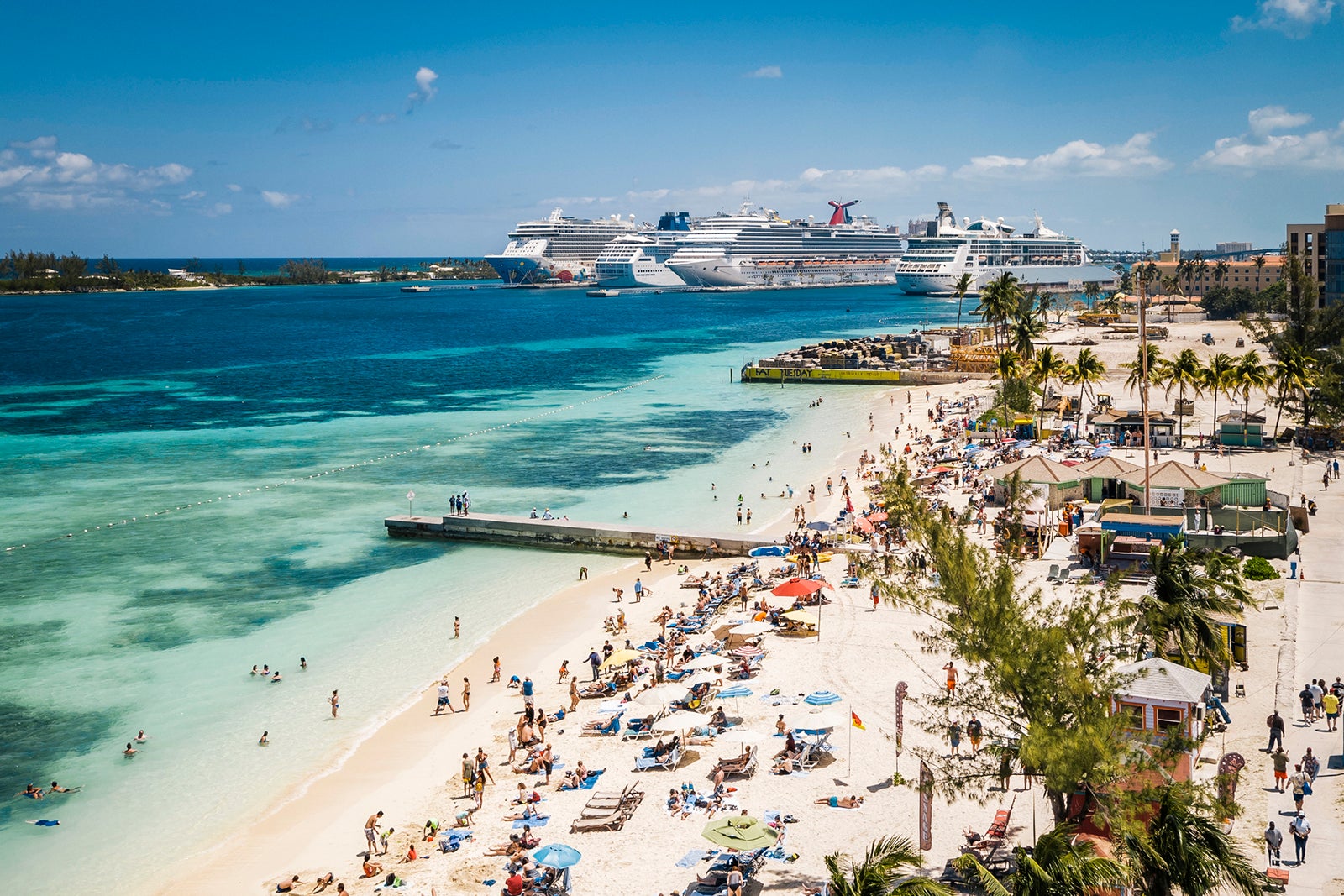Can you go on a cruise with a green card? What US permanent residents need to know about travel documents
Taking a cruise is relaxing, but making sure all your documents are in order for your sailing can be challenging, even more so for United States permanent residents who have a green card. The good news is that if you are a lawful permanent resident of the U.S., you are allowed to travel outside the country and can go on a cruise with your green card.
According to U.S. Customs and Border Protection, “If you are a Lawful Permanent Resident (LPR) of the United States, the U.S. government does not require you to have a passport for any travel, including air, land, or sea travel, however, you are even more likely to be required by your destination country to have one.”
If you’re a lawful permanent resident, you’re cleared for foreign travel, but the documents you need for a cruise vacation might vary based on your departure port and destinations visited.
For cruise news, reviews and tips, sign up for TPG’s cruise newsletter.
Here are the key points you need to know about travel documents if you’d like to go on a cruise as a green-card holder or other non-citizen resident of the U.S.
Does a green card count as a passport?
A green card and a passport are not the same. While both documents are proof of identity, a passport is evidence of your citizenship while a green card shows that you are legally permitted to live and work in the U.S. as a foreign national.
Can I cruise from the US with just a green card?
As a lawful permanent resident going on a cruise from and back to U.S. home ports, you will need your green card to prove your identity and citizenship status so you can reenter the U.S. at the end of your sailing. You’ll have to show the card during the boarding process and again when you reenter the U.S. at the end of your sailing.
Whether you also need a passport from your home country depends on your exact itinerary and the cruise line you’re sailing.
“A green card holder can sail on closed-loop sailings without a passport,” a representative from Carnival Cruise Line explained, referencing round-trip cruises that begin and end in the same U.S. city that only visit nearby countries in the Western Hemisphere (e.g., the Bahamas and Caribbean islands).

Daily Newsletter
Reward your inbox with the TPG Daily newsletter
Join over 700,000 readers for breaking news, in-depth guides and exclusive deals from TPG’s experts
However, there are exceptions. For example, permanent residents must bring their home country passport if their cruises stop in Canada, Colombia, Bermuda or Greenland. A closed-loop cruise visiting ports in Mexico might require a passport, another cruise line representative told us, so double-check if you’re cruising to Puerto Vallarta or Cozumel.
Transatlantic and transpacific cruises and sailings that start in one U.S. city and end in another one (such as full Panama Canal transits) also require green-card holders to carry a passport.
Additionally, some cruise lines might require permanent residents to carry a passport regardless of itinerary, so make sure you check the policy of the line you intend to sail. It’s generally a good idea, especially if something goes wrong on your vacation and you have to disembark early and fly home.
You might also need a tourist visa to enter the port depending on that country’s rules for travel for citizens of your home country. If you need a visa, you typically will need to carry your home country passport as well.
To determine which ports require visas or passports to enter, you can enquire with your travel adviser or head to the government website or embassy of each country your cruise visits to research visa requirements, forms, information and fees for your nationality.
Related: What documents do you need for a cruise? From passports to printouts, here’s what to take
Can I cruise internationally with a green card?
Lawful permanent residents are not limited to cruises from U.S. ports; they can book sailings in Europe, Asia, South America and other international destinations.
To enter another country by air, you will need a passport from your country of citizenship and potentially some travel visas. You’ll need your green card to return to the U.S.
For example, if you’re taking an Alaska cruise that departs from Vancouver, British Columbia, you will need a home country passport and a green card to go through international customs at the airport. If you’re taking a cruise through Europe, you will need your green card, home passport and a visa.
All green-card users should contact the embassy or consulate of the countries on the itinerary to learn about the travel documents that are required. Depending on the ports of call, you might also need a Schengen visa, which allows entry and transit through 26 countries in Europe that are part of the Schengen Agreement. These countries include popular cruise destinations like France, Greece, Italy, Norway and Spain.
Related: Do I need a passport for a cruise?
What if I don’t have a green card but want to travel under the Visa Waiver Program?
For those who are not U.S. citizens or lawful permanent residents, taking a cruise is still possible. If you are traveling under the Visa Waiver Program, you can use the immigration stamp (I-94W) that you were given when you first entered the U.S. to reenter the country at the end of a cruise. Just be sure that your cruise ends before the 90-day admission period that you were originally given with the stamp.
Additionally, if you’re using an immigration stamp to reenter the U.S., you will need to be sure that your cruise isn’t too far away, is only visiting nearby islands or the contiguous country, and that the trip does not take you outside the U.S. for more than 30 days.
If your cruise goes beyond the 90-day admission time, you will need to apply for a new admission period. You will also have to talk to the Customs and Border Protection officer about how you were not using the cruise to get around the time limit for Visa Waiver Program travelers.
How do I reenter the US with a green card?
Reentering the U.S. with a green card is simple. You will need your current, unexpired permanent resident card or green card to give to the Customs and Border Protection officer. Additionally, if you have any other documents that prove your identity, such as a U.S. driver’s license, a foreign national ID card or a passport, give those to the officer as well. The officer will use the documents to verify your identity and immigration status.
Does cruise travel outside the US affect permanent resident status?
If you are a permanent resident, you can travel outside the country for brief travel and it usually does not impact your status. This can change if you travel outside the U.S. for more than a year, but you’re likely not cruising for that long.
Bottom line
If you’re ready to book a cruise but only have your green card as a lawful permanent resident, you don’t need to worry because you can set sail on the high seas without a U.S. passport. However, you often need a passport from your home country and possibly visas to enter ports of call. You will also need to prove your identity upon returning to the U.S. with your green card and a second form of identification, such as a home country passport.
A select few closed-loop, round-trip cruises sailing from a U.S. port only require you to sail with your green card and not a home country passport, but you must make sure your itinerary qualifies otherwise you can get turned away for having missing documentation. It’s always safer to travel with your home country passport, even if it’s not required.
Even if you don’t have a green card and you only have an immigration stamp under the Visa Waiver Program, you can still take a cruise as long as it’s within the 90-day admission period. For either an immigration stamp or green card, it’s important to note the length of the cruise and where it goes. You don’t want to get held at Customs and Border Protection upon reentering the U.S. for going outside the travel parameters of the type of citizen identification you have.
Planning a cruise? Start with these stories:







